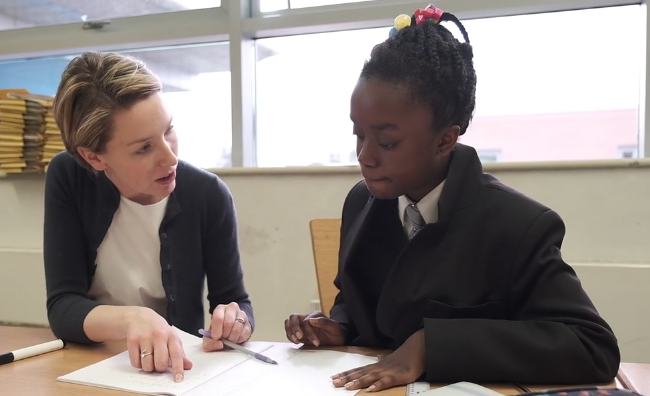Oracy at Bishop Young Academy

Bishop Young Academy is a secondary school based in Leeds. They have worked with us since 2018 to support their ambition to embed oracy into their teaching and learning.
“The more we’ve got used to speaking up in class and the more people’s oracy has improved in the way they articulate themselves, there’s a lot more discussions that go on in classrooms now” Year 9 student, Bishop Young
“It obviously helps towards your written work, but also when you’re going for job interviews and college interviews” Year 9 student, Bishop Young
Where did you start?
Paul Cooper: “We were clear from day one that we felt that we should focus on oracy before we should focus on writing. We felt that we needed the students talking effectively before they could write effectively. Our students do struggle to articulate themselves effectively. Their extended writing hasn’t been as effective at reaching those higher grades. We’ve seen a significant improvement in that as a result of this focus on oracy”
“The reason that I think we’ve been so successful in getting to where we are now, is because it’s been a whole school priority. We’ve got a shared manner of speaking to the pupils and shared expectations for engagement in discussion, I think that’s why it’s so successful.”
What impact have you seen?
Paul Cooper: “We’ve seen a change in the way that the students interact in social time, at lunch and break time in the corridors between lessons, we’ve seen students are able to discuss problems rather than arguing over issues. We’ve had a significant reduction in the students who were removed from lessons for poor behaviour, because they can articulate themselves far more effectively. We’ve had a 69% reduction in classroom removals this year, and that’s accounted for 6000 hours saved in the classroom. Exclusions are below the national average, we’re able to work with students who can now articulate their problems so that they don’t escalate so we can bring them back down and back in the room so that they can get on with their learning.”
What does this look like in your classroom?
Paul Cooper: “In the classrooms we’ve noticed that misconceptions are picked up much earlier because of the students improved ability to articulate themselves, and as a result we can nip them in the bud we can put the relevant intervention into place at that point and that’s resulted in a significant improvement in progress as well.”
Niamh Gee: “I think it’s completely transformed my teaching. I’ve worked in a lot of schools in the past where we’ve had numeracy across the curriculum or oracy across the curriculum almost as a tick box. I think for something like maths and science where you don’t have extended writing, there’s a tendency to think that’s not so much my issue, that it’s not relevant to my subject. When you start to unpick things, we don’t know how we ever taught, how we ever taught maths without oracy.”
© 2024 Voice 21. Voice 21 is a registered charity in England and Wales. Charity number 1152672 | Company no. 08165798